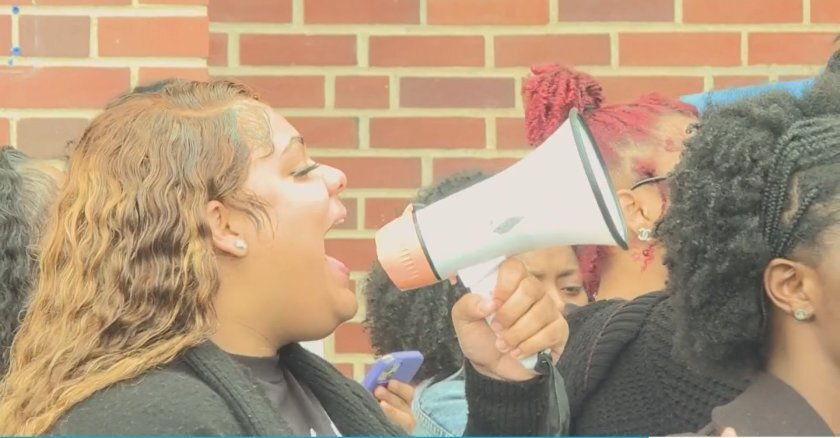Certainly that partisan definition in no way describes Harris or the many other women and minorities who have earned prestigious degrees and positions of influence and importance — including me.
Following the murder of George Floyd and other highly publicized deaths involving excessive use of force by police, many businesses, governments and higher education institutions that had not already done so developed DEI programs and policies aimed at ensuring access and equity. Those programs were supposed to transform the cultures of American institutions, establish level playing fields and provide welcoming environments for all. This has not happened to any great extent.
Among the reasons is the entrenchment of white patriarchal cultures that persist at many institutions. I recall that when I started as the first Black president of Georgia Piedmont Technical College, I was told by my bosses that even if my faculty, staff and students supported the goals of DEI, it could take upward of five years to make any significant changes to our cultural norms that were rooted in the masculine focus of technical education and years of leadership of the college by mostly white men. If that was true of a minority-serving college in a majority Black county close to Atlanta, how many years would it take to change the cultures of race, ethnicity and gender in all of America?
Those of us who have had experience implementing DEI programs know that they do take years to grow roots, even if everyone is united in purpose and acting in good faith. That has rarely been the case. It has been just a little over four years since the tragic death of Floyd, when some of the programs were started or expanded. Yet, many organizations today, including higher education institutions and private businesses, are dismantling their DEI programs.
In late July, the University of Missouri dissolved its DEI division, which was created following student protests in 2015 over allegations of racism at the institution. Three months earlier, the University of Texas disbanded its Division of Campus and Community Engagement, which provided support and resources for minority and other at-risk students. A month before that, the University of Florida terminated all of its diversity employees and closed the Office of the Chief Diversity Officer, prompting Republican Gov. Ron DeSantis to post on social media: “DEI is toxic and has no place in our public universities. I’m glad that Florida was the first state to eliminate DEI and I hope more states follow suit.” It is difficult not to read such a statement as an appeal to racial animus among the GOP base.
Those states are far from alone. Across the country, dozens of bills have been introduced in at least 25 states targeting public-sector DEI funding, practices and promotions. Anti-DEI bills in at least nine of those states have been signed into law.
But while states and educational institutions are closing down their diversity initiatives, research has shown that very little has changed in terms of how women and minorities feel about the white cultures they encounter once they smash through glass ceilings. Another puzzling but rarely discussed aspect of the attacks on DEI programs is that they often ignore the benefits the programs have brought to white women in the private sector.According to the authors of an annualMcKinsey & Co. study, white women have benefited disproportionately from corporate DEI efforts, coming to hold 22 percent of C-suite positions, far outstripping minority women who hold only 6 percent.
My personal story sheds even more light on the debate. I grew up poor on the wrong side of the tracks in Columbia, Mo. Only a few Black people in Columbia had gone to college, and no one in my immediate family. My biggest break was winning a football scholarship to Lincoln University in Jefferson City, one of the state’s two historically Black colleges and universities.
The athletic scholarship was in and of itself a form of DEI’s close cousin, affirmative action, just as legacy admissions are. But once I got a taste of what higher education was and the opportunities therein, I was all in — finishing my undergraduate degree in four years, earning a master’s degree in two years and being awarded a Ph.D. at Emory University three years later at the age of 27. Along the way I received need-based aid that I would not have required had I been born into privilege like many of my white counterparts. I worked hard to achieve what I accomplished and am grateful for the opportunities that this nation made available.
Let’s look closer at the value proposition and outcomes that the DEI programs afforded me: Today I own and pay taxes on three homes. I share wealth with family members and those less fortunate than me, relieving society of some of this burden. Since I’ve been semi-retired, I’ve continue my devotion to public service.
The investments this country made in me have paid off tenfold. Society is better off having people like me as contributing members, rather than being relegated to a life of scrimping by in dead-end jobs or perhaps being caught up in the criminal justice system, like my brother was and so many others are today. They might have benefited had they received empathy from our elected officials — and a little more diversity, equity and inclusion.
Governing’s opinion columns reflect the views of their authors and not necessarily those of Governing’s editors or management.
Related Articles













